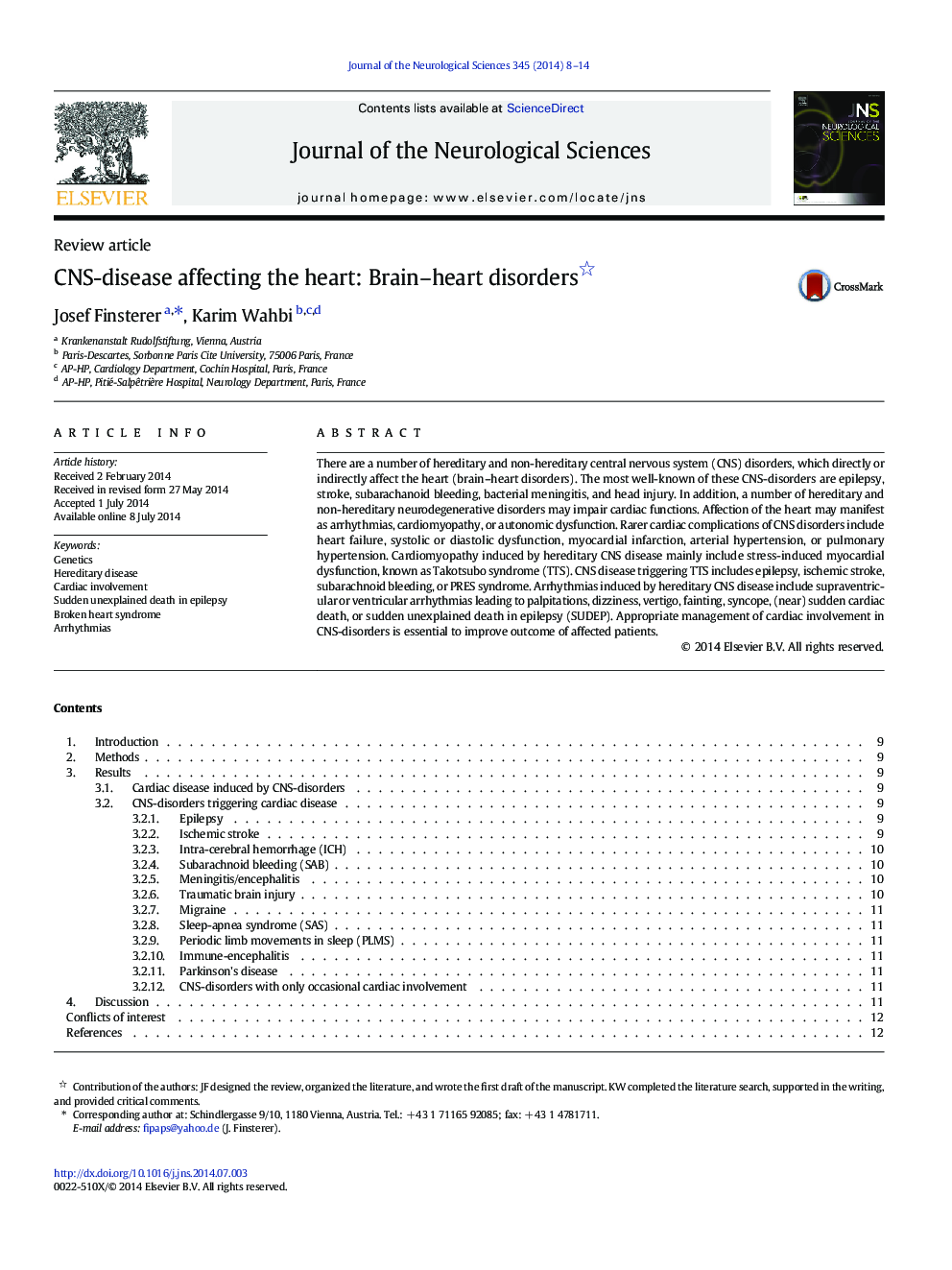| کد مقاله | کد نشریه | سال انتشار | مقاله انگلیسی | نسخه تمام متن |
|---|---|---|---|---|
| 1913340 | 1535117 | 2014 | 7 صفحه PDF | دانلود رایگان |

• Brain-heart disease is more frequent than assumed.
• All brain disorders need to be investigated for their effect on the heart.
• Addressing cardiac involvement in CNS disease significantly improves the outcome.
There are a number of hereditary and non-hereditary central nervous system (CNS) disorders, which directly or indirectly affect the heart (brain–heart disorders). The most well-known of these CNS-disorders are epilepsy, stroke, subarachanoid bleeding, bacterial meningitis, and head injury. In addition, a number of hereditary and non-hereditary neurodegenerative disorders may impair cardiac functions. Affection of the heart may manifest as arrhythmias, cardiomyopathy, or autonomic dysfunction. Rarer cardiac complications of CNS disorders include heart failure, systolic or diastolic dysfunction, myocardial infarction, arterial hypertension, or pulmonary hypertension. Cardiomyopathy induced by hereditary CNS disease mainly include stress-induced myocardial dysfunction, known as Takotsubo syndrome (TTS). CNS disease triggering TTS includes epilepsy, ischemic stroke, subarachnoid bleeding, or PRES syndrome. Arrhythmias induced by hereditary CNS disease include supraventricular or ventricular arrhythmias leading to palpitations, dizziness, vertigo, fainting, syncope, (near) sudden cardiac death, or sudden unexplained death in epilepsy (SUDEP). Appropriate management of cardiac involvement in CNS-disorders is essential to improve outcome of affected patients.
Journal: Journal of the Neurological Sciences - Volume 345, Issues 1–2, 15 October 2014, Pages 8–14